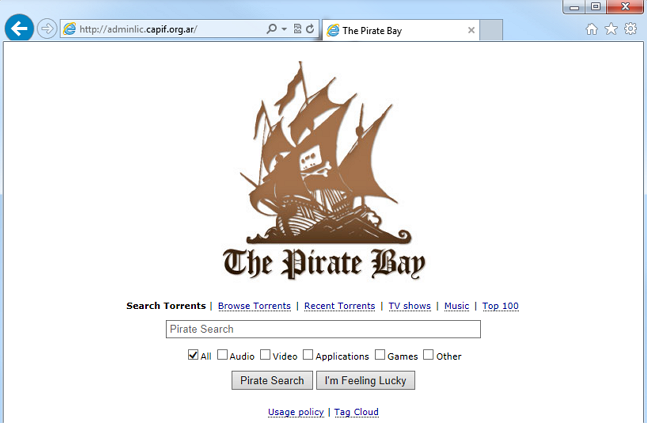There was a time when music and movie industry aggression against The Pirate Bay was met with aggression right back, with sites belonging to the MPAA, RIAA, IFPI and others targeted in retaliatory moves.
In recent times, however, that kind of reaction has largely been on the wane. It’s not immediately clear why, but it’s certainly possible that supporters have become used to the world’s largest torrent site being under assault.
And under assault it has definitely been, with web blockades now in place all over Europe. Yesterday the phenomenon spread to Argentina, where local music industry group CAPIF obtained a preliminary blocking injunction against the famous torrent site, the first of its type in Latin America.
The order issued by the 67th District Federal Court compels eleven ISPs to block 256 Pirate Bay IP addresses and 12 domains, which will soon render The Pirate Bay pretty much inaccessible across Argentina.
However, unlike their European counterparts, the Argentinians didn’t get the memo about not retaliating against music industry aggression. With the blockade now in place across several ISPs, it appears that local hackers have already turned the ban on its head in the most dramatic way possible.
Right at this moment, CAPIF’s very own website is operating as a fully functioning Pirate Bay proxy site. Visitors to adminlic.capif.org.ar are greeted with the familiar TPB homepage and are granted full access to the site.
It’s very likely that CAPIF will soon move to shut down access to the proxy, but already the damage will have been done. This act of rebellion has the potential to generate more headlines than the blockade itself, meaning that over the next couple of days all blocked Argentinian TPB users will know what a reverse proxy is and what they are capable of.
Activism in support of torrent and file-sharing sites might be an art on the decline, but its ability to send powerful messages remains, especially when it turns the resources of ‘enemies’ right back against themselves.
Update: After serving torrents for at least 10 hours the proxy has now been pulled offline.






